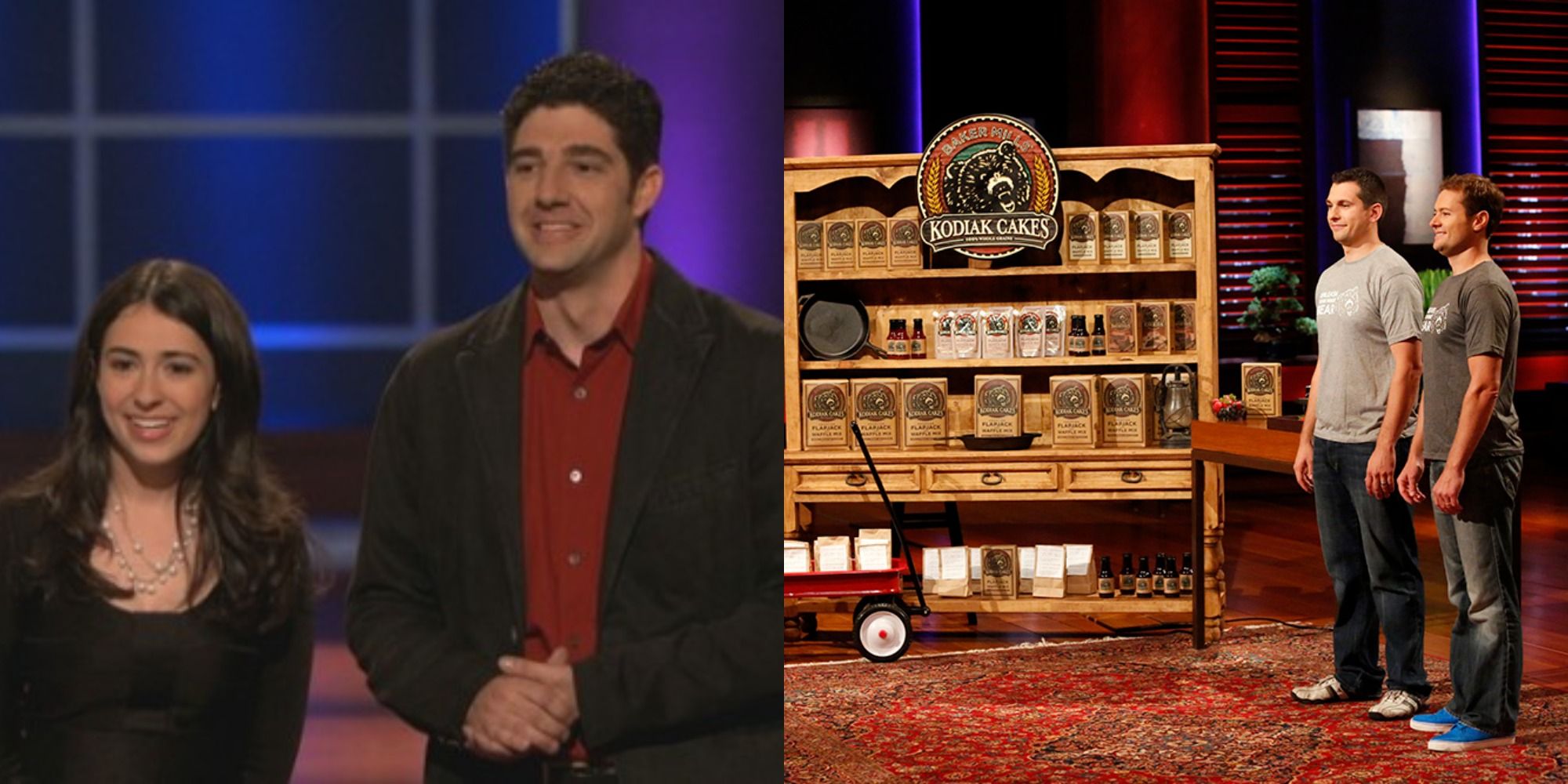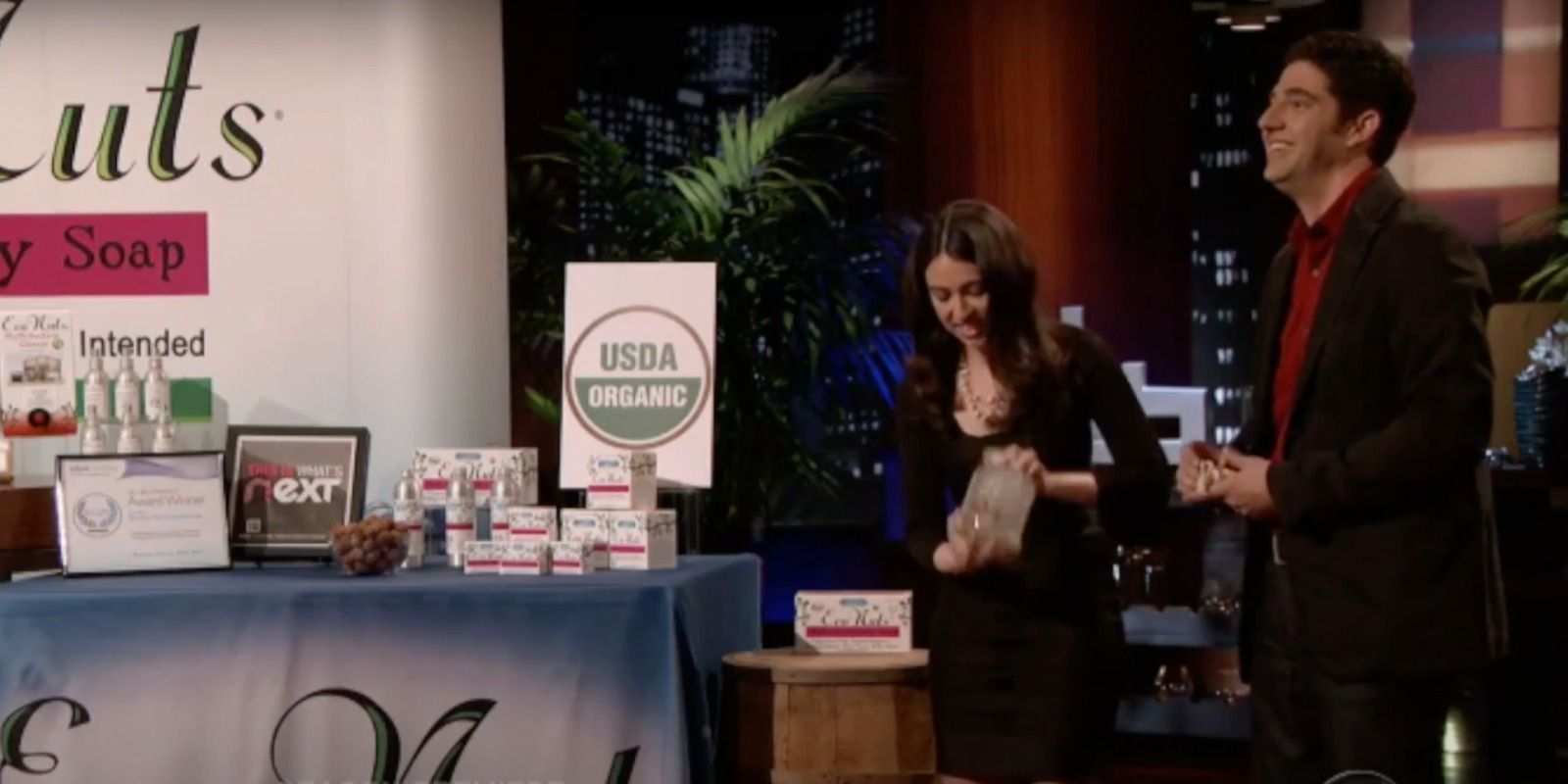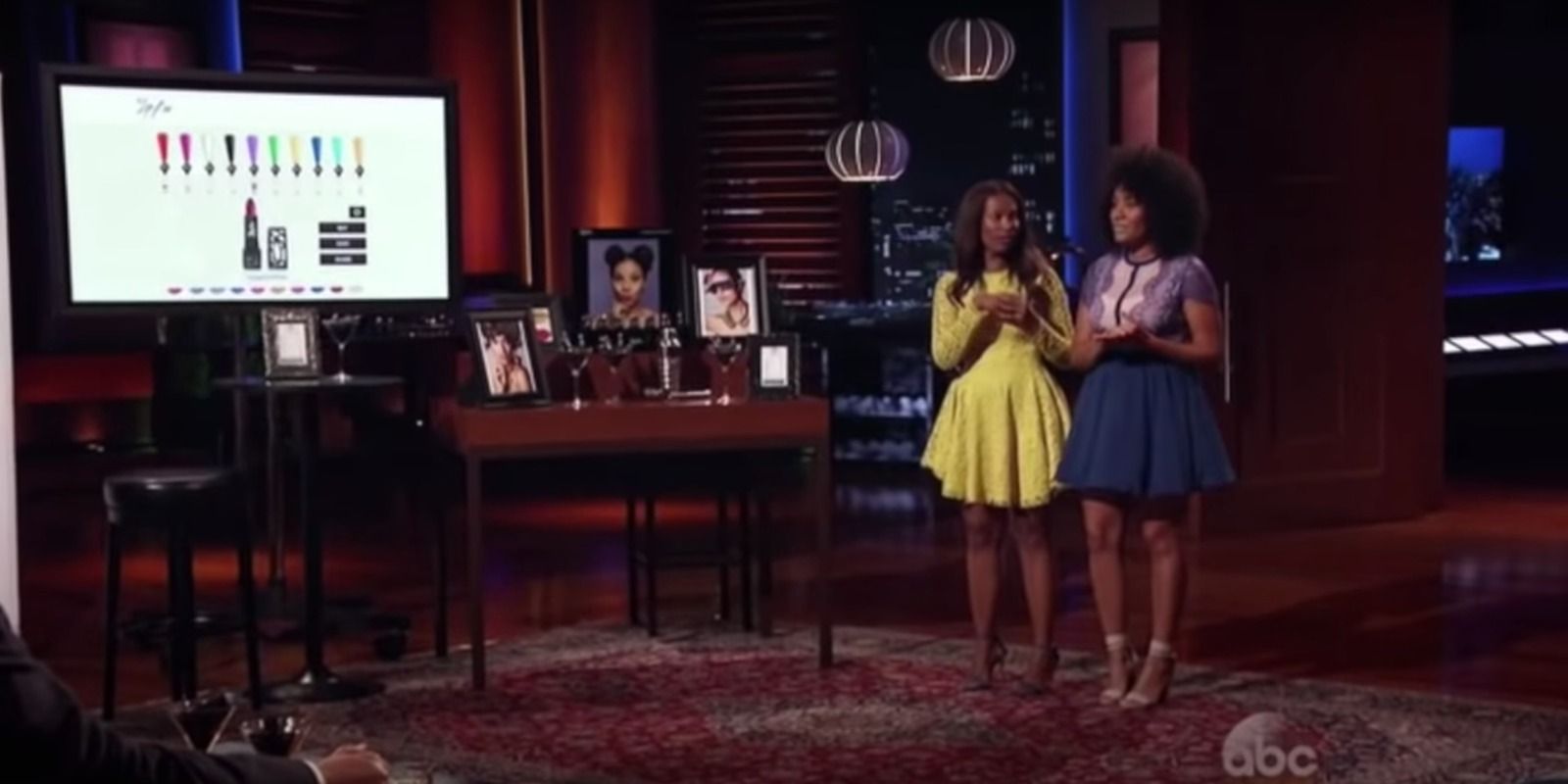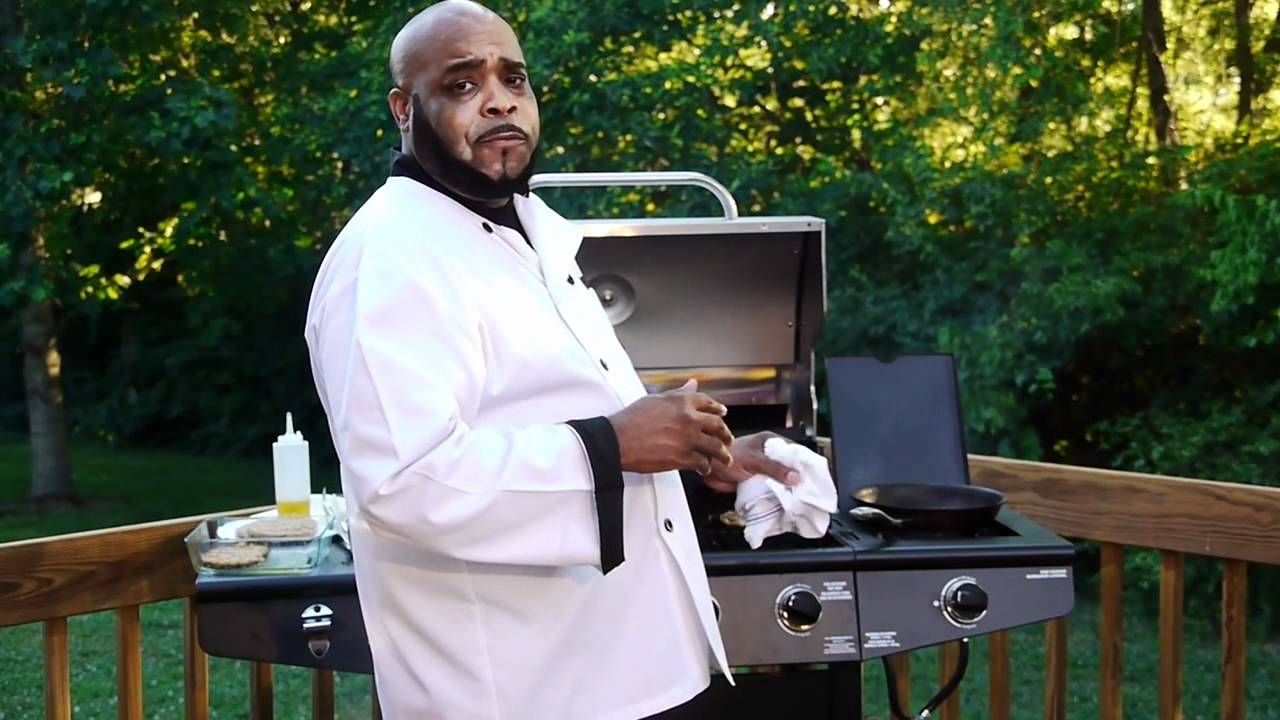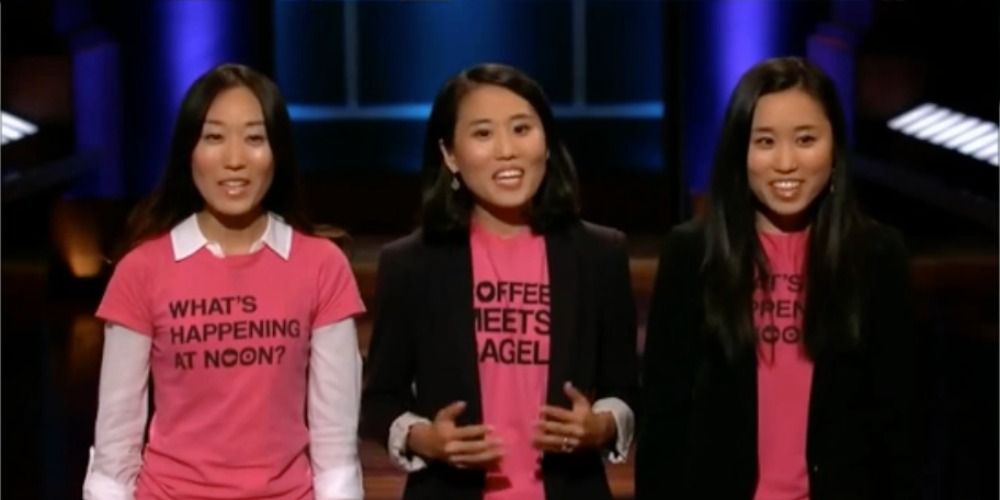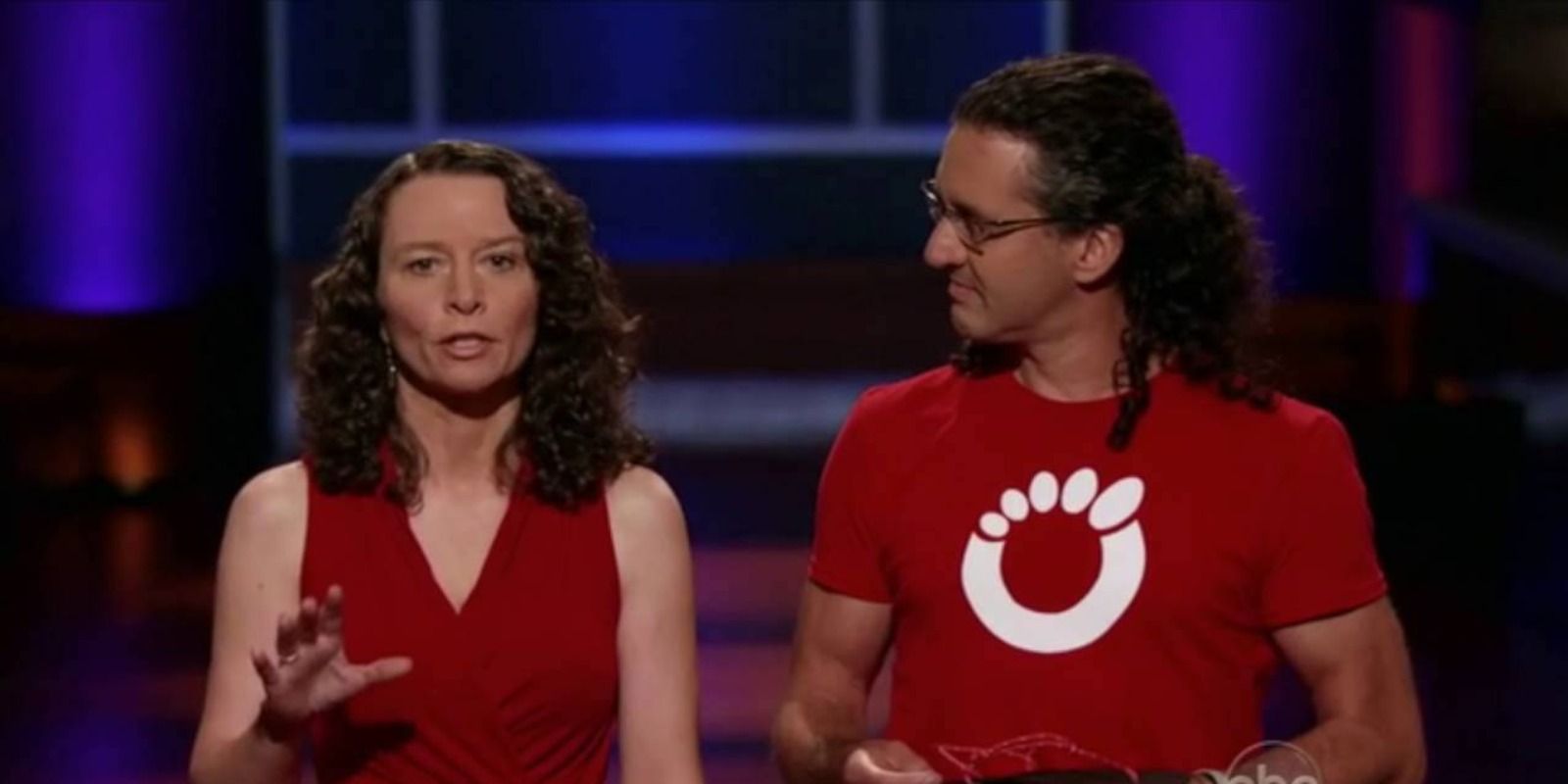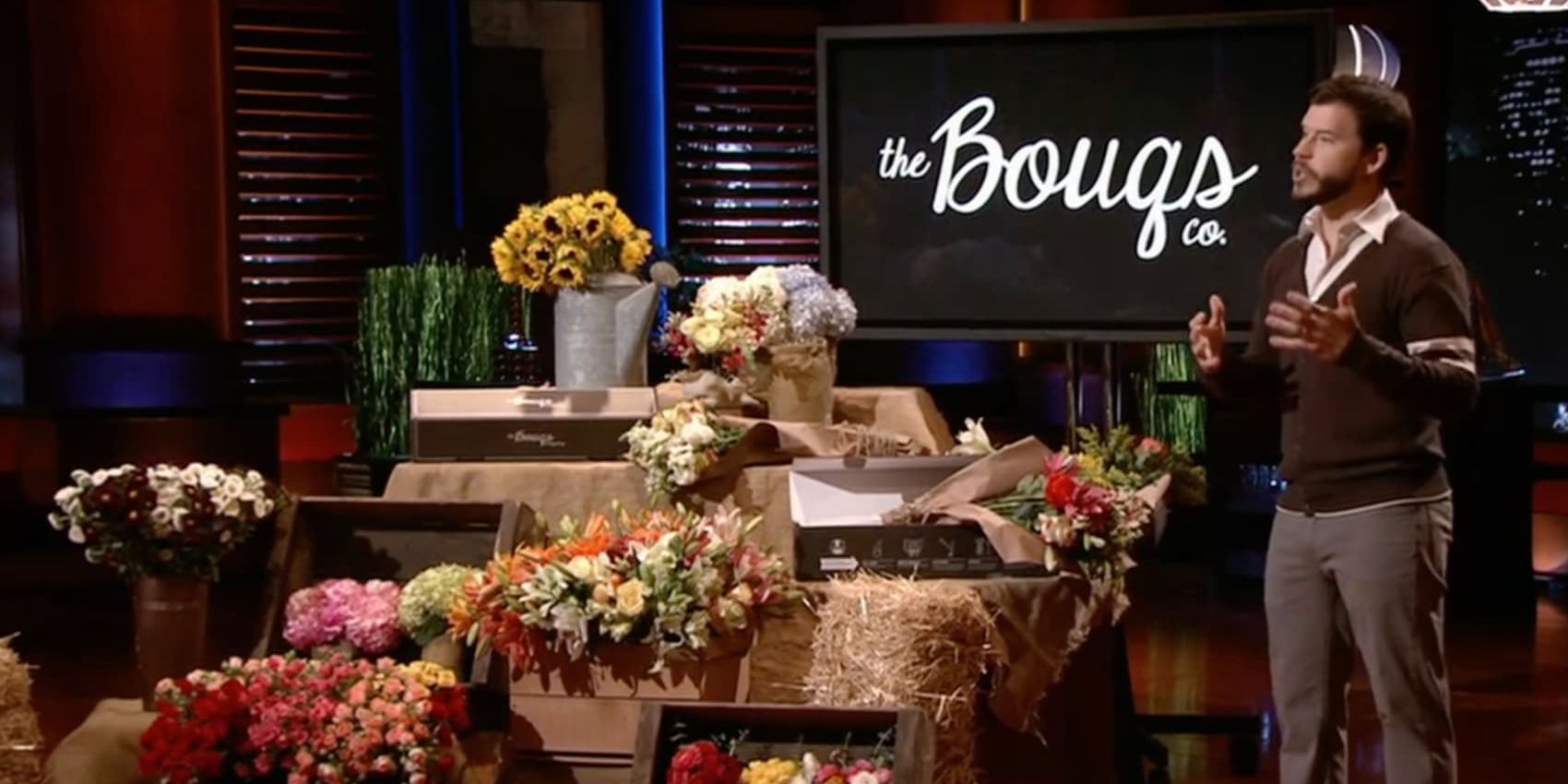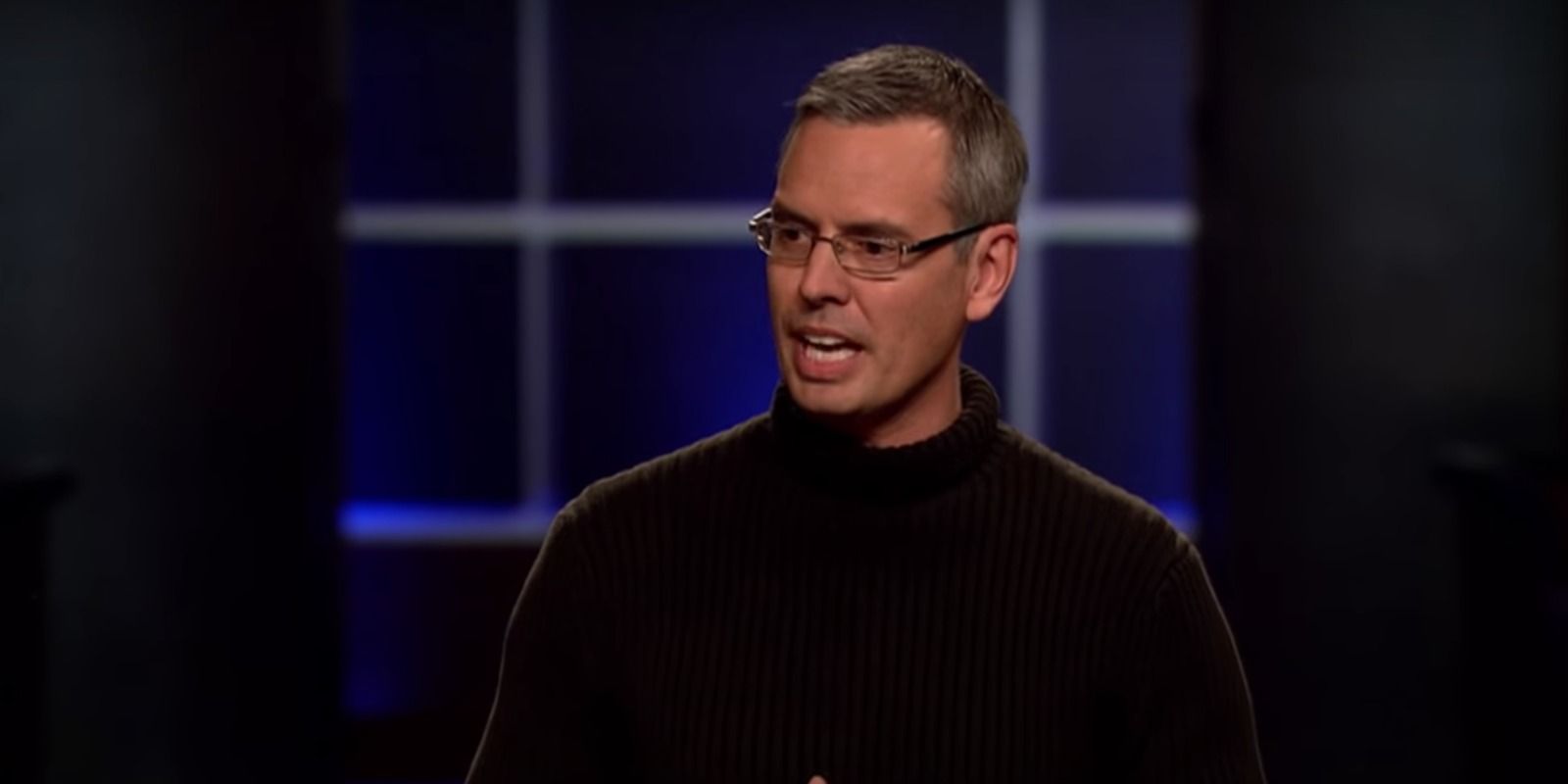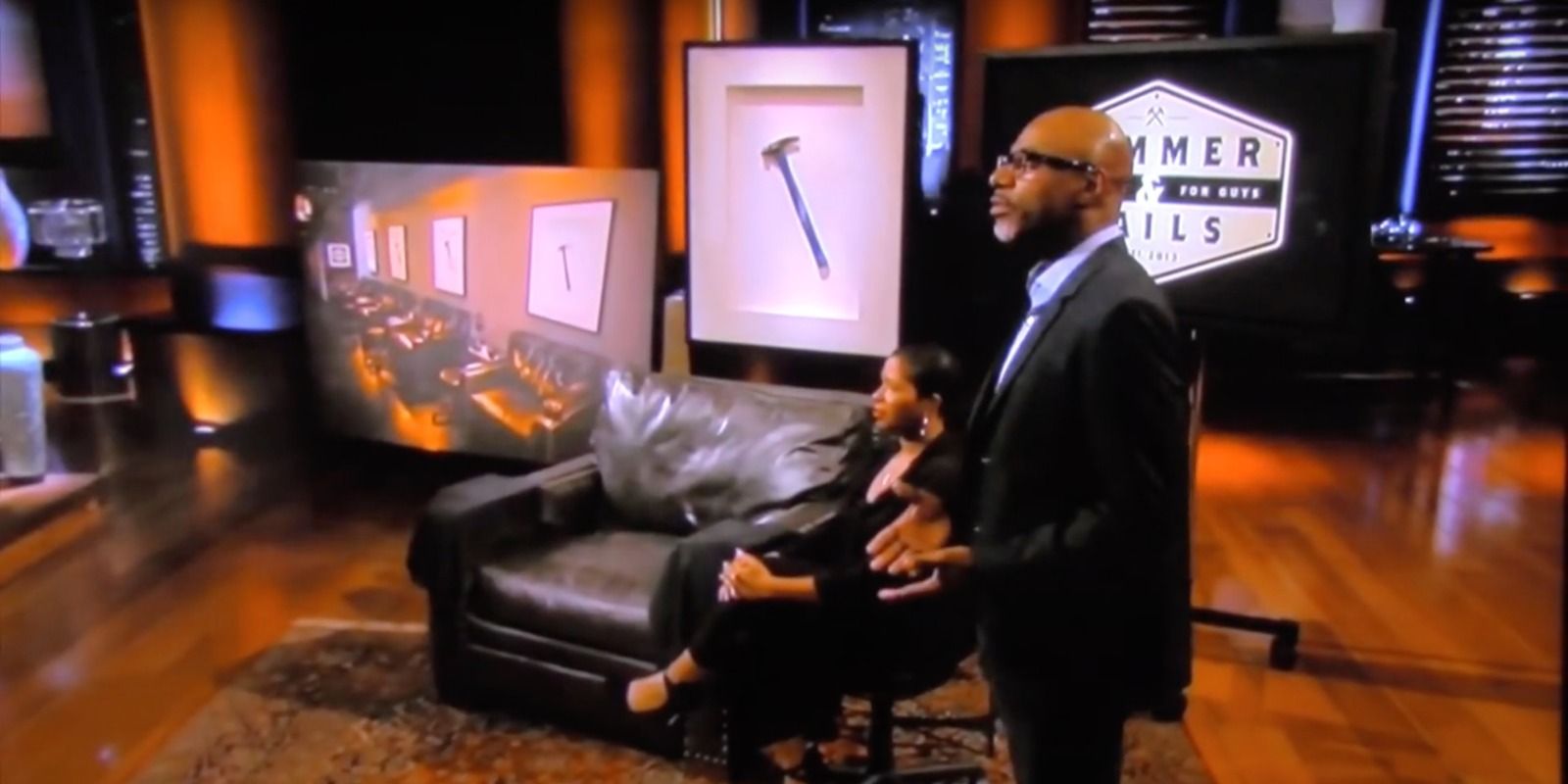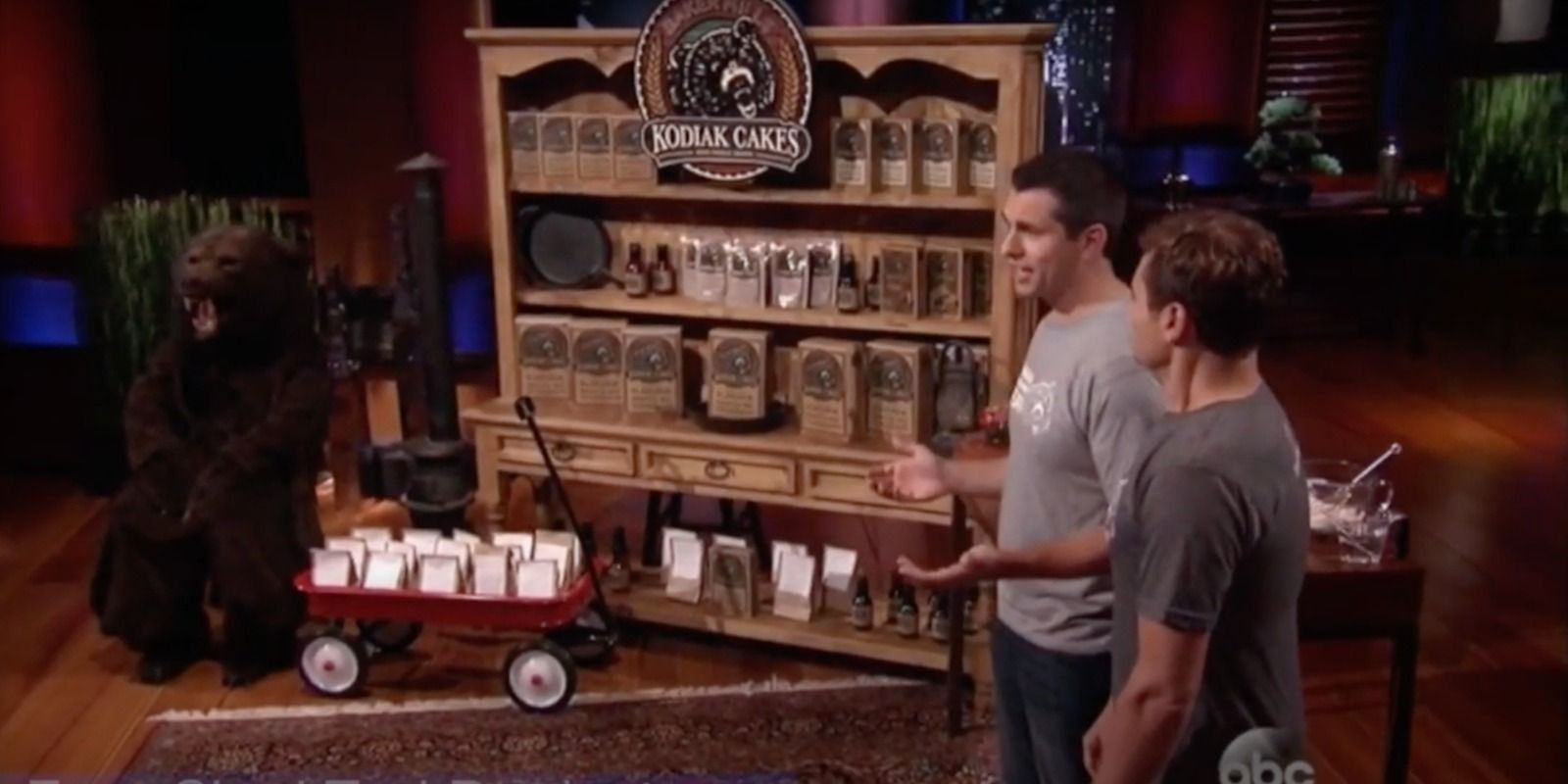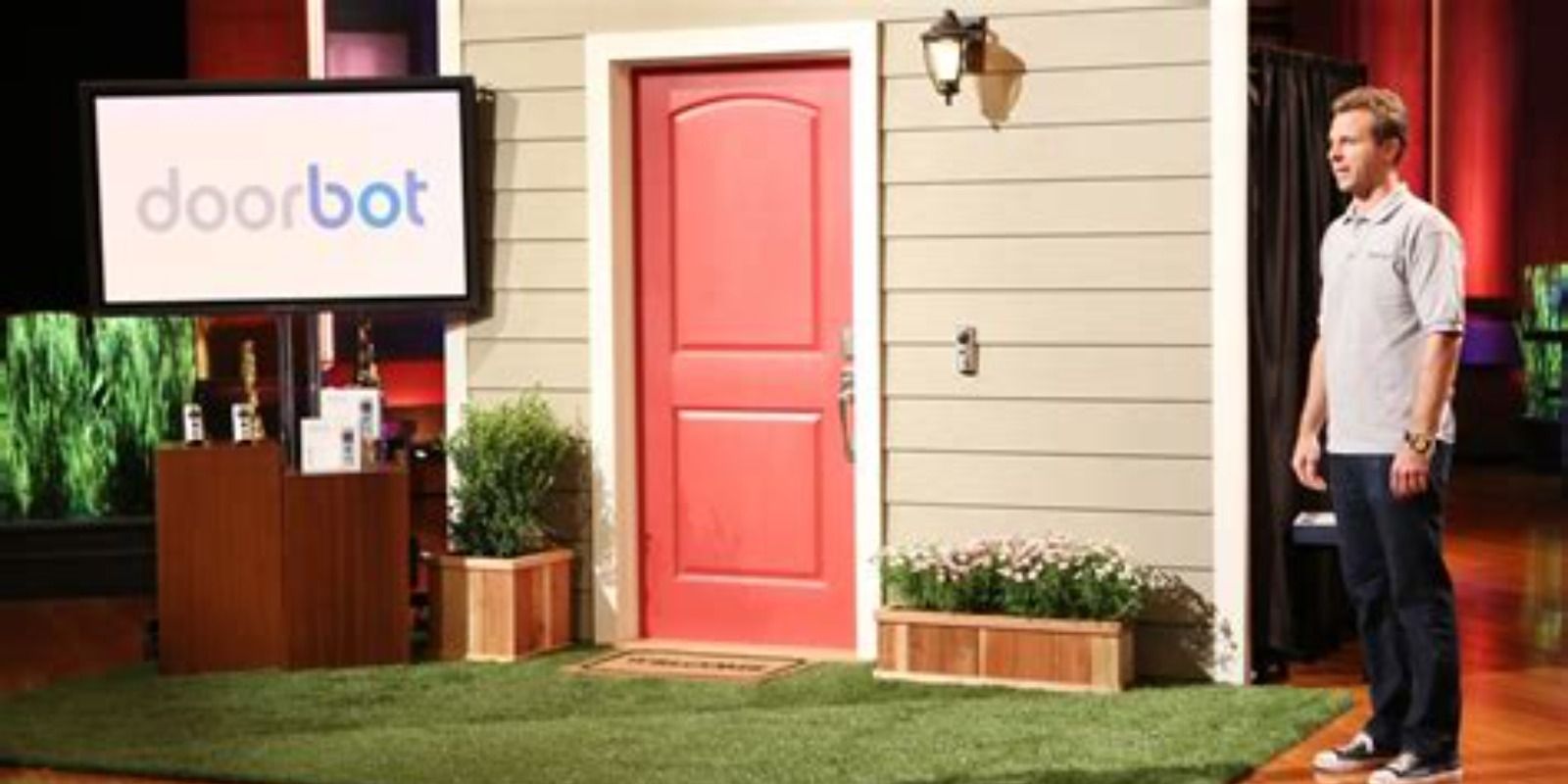The ABC reality-TV show, Shark Tank, allows contestants to pitch their business idea to the sharks, a group of five successful business people who can then choose to invest in the featured business or declare themselves out. While, for many, it's a dream come true to get an investment, a rejection on the show doesn't spell doom for a business.
Many businesses that the Sharks reject go on to find success after appearing on the show, through the exposure it provides the business, and sometimes this success is phenomenal.
Eco Nuts
Pitched by Mona Weiss and Scott Shields in season 4, episode 6, Eco Nuts is an organic laundry detergent made from the shells from the fruit of the soapberry tree, making it eco-friendly, hence the company name.
Although the two didn't get an investment, thanks in part to an argument with Daymond John, the company went on to garner a valuation of over $1 million, and have been featured on Forbes, the New York Times, USA Today, the Huffington Post, and CBS, among other outlets. No tears need be shed for this rejection.
The Lip Bar
Beauty is a booming industry, but often has harmful side effects regarding animal testing and the usage of animal products in manufacturing. Lip Bar came along to solve these problems, boasting a cruelty-free, vegan-friendly lipstick brand made from natural, plant-based ingredients.
After not hooking any Sharks in season 6, episode 15, Melissa Butler's Lip Bar went on to have a valuation of $7 million by 2022, as reported by Biznewske, which, while far from the most successful Shark Tank pitch, is still an envious position for most businesses.
Chef Big Shake
Like Lip Bar, Shawn Davis's idea also started due to animal cruelty when his 10-year-old daughter decided to no longer eat red meat after learning about the treatment of animals in the process. So, Davis devised a burger made from shrimp.
Pitched and rejected way back in the first episode of Shark Tank's highly-rated season 2, Big Shake would go on to become a brand in and of itself, with Davis going on to own his own chain of restaurants in Tennessee. He saw his sales grow from $30,000 to $5 million in the year after his appearance, as revealed in a profile with Delish.
Coffee Meets Bagel
In season 6, episode 11, something unprecedented happened: Mark Cuban, one of the best Sharks on Shark Tank, offered to buy Coffee Meets Bagel, a dating app, outright from sisters Soo, Dawoon and Arum Kang for $30 million. Even crazier? They turned him down, not wanting to give up their company. So, they left without a deal.
After that, though, the company managed to raise $23 million in funding by 2019 and, at the same time, was snagging around 250,000 downloads per month with around 65 employees, as per Forbes.
Xero Shoes
Footwear is a crowded business, but one with billions of potential customers. Pitched by Steven Sashen and Lena Phoenix in season 4, episode 13, Xero Shoes promised to provide the benefits of shoe protection while giving the user the feeling of running barefoot.
The $800,000 already in sales wasn't enough to entice the Sharks, though. Xero Shoes was far from done, however, managing to rise to a company valuation of $30 million by 2019, as estimated by Forbes, and expanding the line to boots and sandals, as well.
Bouqs
An eco-friendly business model benefits not only the planet but the business itself, as the flower delivery service Bouqs showed viewers. Appearing in season 5, episode 26, John Tabis hoped his business would stand out for its focus on sustainability and providing farm-fresh flowers that aren't picked until they're ordered.
While the Sharks didn't bite, other investors certainly did, with the company raising $43 million, as indicated by Forbes. Shark Tank's Robert Herjavec even made a deal as part of that group, after using the service for his wedding. With 85 employees in 2019, Bouqs was doing $30 million in sales a year.
Copa Di Vino
It's one thing to walk away without a deal once, but twice? That's exactly what James Martin did on his season 2 and season 4 appearances. In the first one, he rejected Kevin O'Leary's idea for a focus on patents, and on his second appearance, he managed to be left with just O'Leary once more.
Martin knew he had something when he came back to the show with $5 million in sales, and it's clear that his business wasn't done growing. By 2019, Forbes reported that it had reached approximately $67 million in revenue, netting its spot as one of the biggest no-deals in the show's history.
Hammer And Nails
The word "salon" may carry an inaccurate association with women and women only, but Hammer And Nails founder Michael Elliot sought to change that, creating a salon focused on catering to a male audience.
Elliot's appearance in the first episode of season 6 didn't net him a deal, though, even though the company already had a valuation of around $1 million at that time. By 2017, only three years later, the company would be valued at $100 million, proving Elliot knew exactly where the customers were, as Go Banking Rates.
Kodiak Cakes
A family pancake mix recipe had been with Joel Clark's family since he was a child, but in 2014, he turned it into a business. In only a few months, he was in the tank in season 5, episode 28 with business partner, Cameron Smith. His offer to the Sharks was $500,000 for a 10 percent stake in the company, with no takers.
In their appearance, the two justified the valuation by estimating the company would, in short order, do $20 million in sales within four years. As it turns out, though, they underestimated, with the company reaching $100 million in sales by 2018, according to Go Banking Rates.
DoorBot (Ring)
Branded as "DoorBot" when it appeared on the show in season 5, none of the Sharks took a bite in Jamie Siminoff's product, citing the fact that the idea was too early in development.
However, Siminoff would take that rejection all the way to the bank, continuing to grow the business (rebranding it "Ring"), and in 2018, the company was purchased by Amazon for around $1 billion, according to CNBC, making it the most successful Shark Tank rejection ever, and having Siminoff actually return as a guest Shark on Shark Tank.

